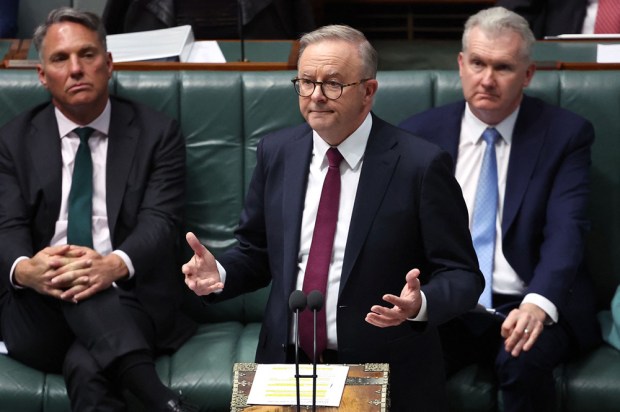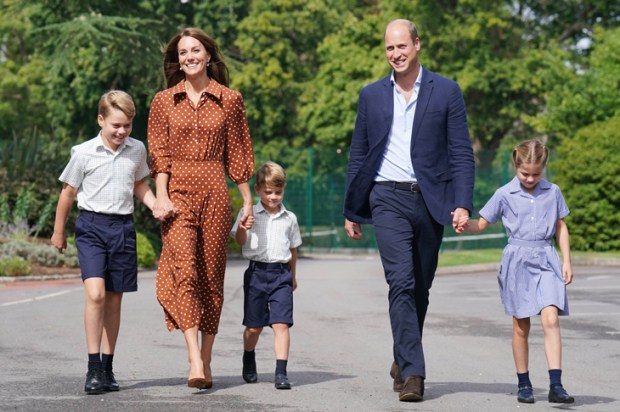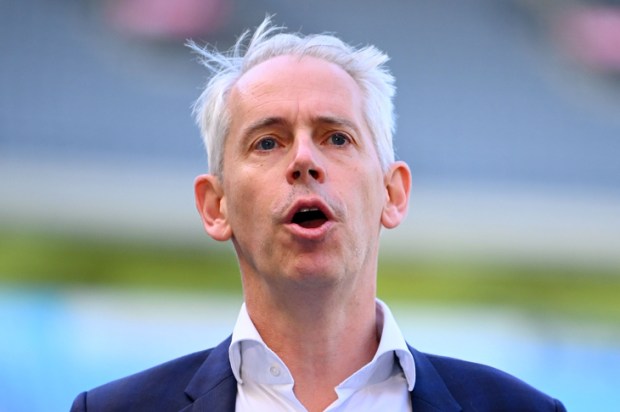The British people have not only shown us how to recover our country from the elites, Brexit has further reduced the chances of Malcolm Turnbull’s dream of a politicians’ republic ever being realised.
One of the few emotional republican arguments in the 1999 referendum was that world war veterans were forced to queue at Heathrow while former enemies could walk through unhindered. This was a slap in our face − not by the Queen and not by the British people but by the political class. Not only did Ted Heath and assorted elites ignore the Commonwealth when they engineered the entry into what was to become the EU, they betrayed the British people. Their treachery was covered by the lie that the European project was only about reducing and removing trade barriers.
Instead, it was about transferring the sovereignty of the United Kingdom to what would soon become, as planned, a federation. Heath’s reasons were vanity and power. He imagined that he’d soon be in the cockpit of Europe, a superpower dominating the world alongside the USA and USSR. Naïvely, he just did not appreciate that there were never going to be more than two seats in that cockpit, indelibly branded Bundeskanzler and Le président de la République. Nor were they ever going to add London to the Paris-Bonn (now Berlin) Axis, even if the UK were, after Germany, the largest financial contributor to the EU and even though she took her obligations more seriously than most.
There was even worse. Unlike the Australian Commonwealth as designed by our Founding Fathers, there was to be at its very centre a glaring democratic deficit. Instead of being a representative democracy, it would be a voracious authoritarian bureaucratic monster. Whenever voters dared exercise their constitutional right to reject the loss of even more of their sovereignty – as did the Dutch, French and Irish, the typical Eurocrat reaction was ‘The people must keep on voting until they get it right’. So when the EU Constitution was rejected, it was effectively adopted under the pseudonym of the Treaty of Lisbon.
This treacherous transfer of the sovereignty of the very nation which, with the Commonwealth, was almost alone in standing up to Hitler never had the approval of the people who always remained closer to Australians and the people of the Commonwealth rather than to Europe. Just recall the time when a fish war broke out between Spain and Canada − British fishing boats left port flying Canadian flags.
Britain will soon be once again an independent sovereign country. It is not surprising that a people who defied Hitler would not be the slightest concerned by the inevitable gyrations of the financial markets, or the threatened flight of London bankers to Frankfurt. Their concern is higher and more noble. As they did in the dark days of the Second World War, they would declare, just as Patrick Henry did, ‘Give me liberty or give me death’.
Nor should the British be overly concerned by the machinations of the Edinburgh politicians who, just like Heath, have ambitions to be more important than they are. An Australian analogy would be a state premier demanding secession so that he would become a prime minister, addressing the UN and going around the world visiting presidents and prime ministers. As the status of Scotland is an internal constitutional matter the British should learn from Australia and not deal with this by way of a plebiscite but instead let any decision be made by the Swiss style referendum. The difference is that in a Swiss referendum the details are on the table before the people vote and are not decided afterwards by the politicians.
These details would include proceeding on the basis that London would no longer subsidise Scotland by £15 billion annually with a consequent decline in the GDP of 14 per cent, nor pay its share of the EU contribution estimated at £1.5 billion, an acknowledgement that the Security Council seat and participation in the Five Eyes intelligence agreement and other treaties would remain with the UK, determining what would happen to the nuclear submarine fleet, the Army, RN and RAF, the pound and the national debt. Once the Scottish voter saw what a disaster would follow, he or she would undoubtedly cast an informed vote.
Apart from this internal matter, the British have given us a lesson on how to remove the rot which is destroying our country. Why should we be told by the prelates of the church of climatology in the UN that we must impoverish ourselves by paying billions and by reducing our carbon dioxide emissions when there is no evidence that this is responsible for a global warming which has long stalled?
Why should we listen to the politicians on this when most have carbon dioxide footprints many times the size of the average Australian’s? Why should we be lectured on human rights by a UN body replete with dictatorships?
Why should our right to decide who comes into this country be affected by a UN treaty? Why should the traditional family, the basic institution in any civil society, be undermined?
Why, compared with other countries, are reading and mathematical standards in our schools falling so precipitously, while a Marxist is allowed to introduce programs to change society fundamentally and sexualise children against the wishes of their parents?
Why is the criminal justice system far less concerned with the victims of crime than it once was? Why are billions of dollars in the defence budget used to prop up politicians’ seats?
Why are our farmers so persecuted?
The fact is there is as huge a disconnect between the people and the elites in Australia as there is in Britain.
Brexit indicates the answer. Empower the people and make the politicians accountable on every day of every month and of every year. The people should be able to recall the politicians, repeal their legislation and introduce their own. Family First, Christian Democrats, Pauline Hanson’s One Nation, and other conservative parties and independents agree.
This can best be achieved in the same way we achieved the Federation of this continent as one, rather than several countries. This would be through the election of an unpaid convention to resolve these issues with a clear commitment that after consultation with the politicians its conclusions will be put directly to the people for their final decision.
The post Why can’t we exit, too? appeared first on The Spectator.
Got something to add? Join the discussion and comment below.
Get 10 issues for just $10
Subscribe to The Spectator Australia today for the next 10 magazine issues, plus full online access, for just $10.
You might disagree with half of it, but you’ll enjoy reading all of it. Try your first month for free, then just $2 a week for the remainder of your first year.













Comments
Don't miss out
Join the conversation with other Spectator Australia readers. Subscribe to leave a comment.
SUBSCRIBEAlready a subscriber? Log in